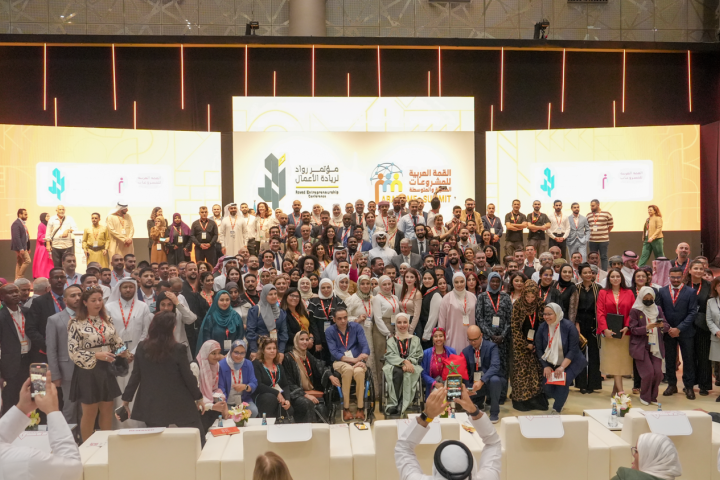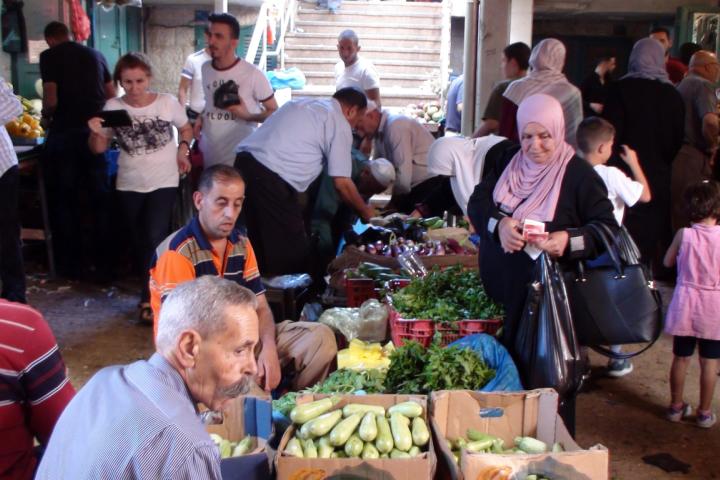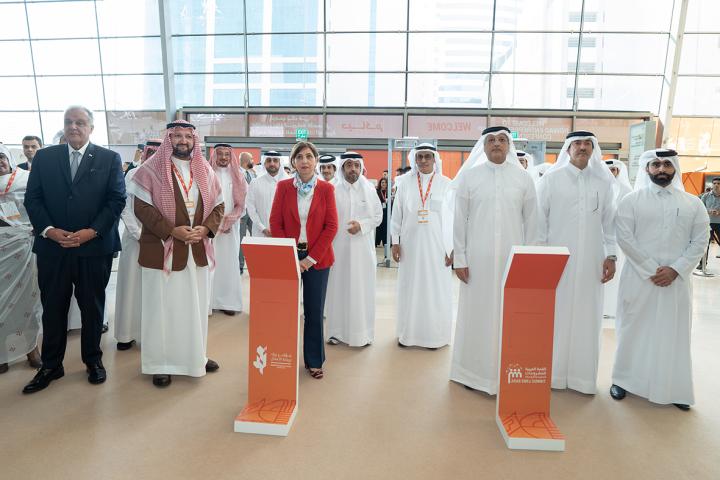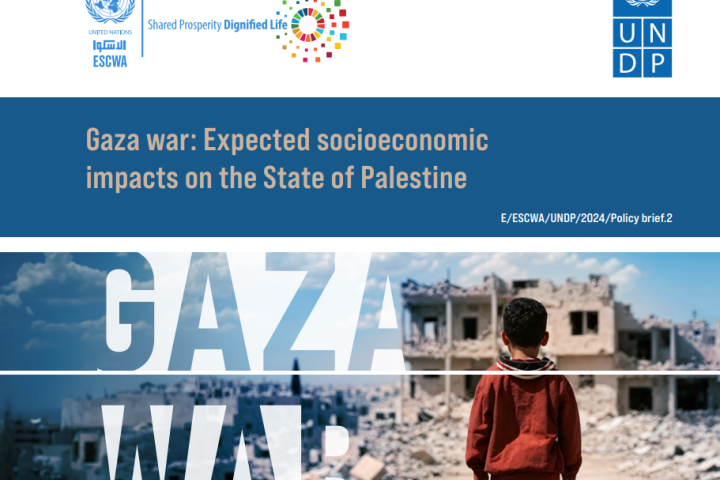New York-Jeddah-Beirut, 11 May 2021--The United Nations and the Islamic Development Bank today launched an initiative to help fund efforts to recover better as the world continues to grapple with the COVID-19 pandemic.
Coming at a time when the global health and economic crisis have pushed millions of people into extreme poverty, the newly launched International Dialogue on the Role of Islamic Social Financing in Achieving the Sustainable Development Goals will help unlock Islamic social financing that has the potential to provide urgently needed support for poverty alleviation, economic recovery, pandemic response, and sustainable development.
“Standing in solidarity with those in need means exploring how Islamic social financing can support the pandemic response through the ACT-Accelerator and its COVAX Facility, as well as other initiatives and vehicles to ensure equitable access to vaccines, diagnostics and therapeutics,” said Ms. Amina Mohammed, the Deputy Secretary-General of the United Nations, in her opening statement at the event, welcoming the timely support from the Islamic Development Bank.
According to the latest United Nations economic forecast launched today, economic recovery, despite indicating modest progress compared to 2020, remains under threat amid surging COVID-19 cases and lagging vaccination in poorer countries, widening inequalities and setting back further progress on the Sustainable Development Goals (SDGs) – the global blueprint for ensuring a better future for all by 2030.
The world’s only vaccine equity mechanism, COVAX, led by the World Health Organization (WHO), GAVI and the Coalition for Epidemic Preparedness Innovations (CEPI), in partnership with the United Nations Children’s Fund (UNICEF), has so far shipped nearly 60 million COVID-19 vaccines to more than 120 participating countries, in an unprecedented global vaccine roll out in history. COVAX still needs US$ 2.8 billion to meet its goal of ending the acute phase of the pandemic by year end.
‘’As the world comes to terms with the evident fragility of our socioeconomic systems, especially during the current pandemic, the tools of Islamic social financing provide an opportunity to usher in much needed resilience,” said Mr. Bandar Hajjar, the President of the Islamic Development Bank Group, highlighting the significance of the International Dialogue on the role of Islamic social financing.
“I am confident that zakat, sadaqa, waqf and Islamic microfinance can help bring a grass-roots, inclusive and more resilient approach to development, and I look forward to working with our partners at the United Nations to mainstream these tools to meet pressing needs and achieve the SDGs,’’ he added.
Furthermore, Mr. Hajjar confirmed the Bank’s full alignment with the importance of leveraging social financing to mitigate the impacts of the raging pandemic, including production of COVID-19 vaccines to attend to developing and least developed countries.
Using traditional instruments such as zakat (obligatory almsgiving amounting to about US$ 300 billion annually), sadaqa (charitable giving) and waqf (endowments and trusts), as well as microfinance instruments such as qard hassan (benevolent loans), Islamic social financing remains a critical financing mechanism, based on the values of faith and inclusivity, in line with goals of the SDGs to promote social trust, cooperation and solidarity in the fight against poverty and hunger.
“As we seek to overcome financial constraints, funding shortfalls and financing inequalities, we believe that Islamic social financing, itself built on the principles of fairness and justice, can open pathways to stimulate economic activity and promote social welfare, financial inclusion and shared prosperity,” said Ms. Rola Dashti, the Executive Secretary of the UN Economic and Social Commission for Western Asia (ESCWA).
“Using the modern tools of the Fourth Industrial Revolution, including blockchain, fintech and artificial intelligence, we can better manage zakat, awqaf and Islamic microfinance,” she added, calling for the International Dialogue to explore the possibility of establishing a regional zakat, waqf and sadaqa fund to support instant emergency relief for the most vulnerable and longer-term poverty eradication.
The International Dialogue will consist of a series of virtual seminars extending until November 2021, facilitated by the UN Institute for Training and Research (UNITAR) and made possible thanks to the generous support of the Government of Qatar. The seminars will bring together Islamic social financing institutions, scholars and experts, the international humanitarian and development systems and other stakeholders to foster a better understanding of both Islamic social financing and existing UN platforms and initiatives.
“To unlock Islamic social financing for the SDGs, there are two complementary and intertwined tracks,” said Mr. Mahmoud Mohieldin, Special Envoy of the Secretary-General on Financing the 2030 Agenda for Sustainable Development.
“The first is knowledge, and I am delighted to see so many scholars, practitioners, experts, academics, think tanks and research centres answered the call to join today. The second is the partnerships needed to scale up and multiply the financing, and there is nobody better than the United Nations and the Islamic Development Bank to take this forward.”
Expected outcomes of the International Dialogue also include a report on leveraging Islamic social financing to achieve the SDGs; the establishment of a knowledge repository and e-learning modules on the subject at UNITAR; and a road map with concrete recommendations on the way forward, contributing to the Financing for Development in the Era of COVID-19 and Beyond Initiative.
“Launching this International Dialogue during Ramadan highlights the importance of helping those in need. Never has it been so important to come together in solidarity to achieve the SDGs and alleviate the impacts of the COVID-19 pandemic,” concluded Mr. Ahmed Al Meraikhi, Special Adviser to the UN Secretary-General.
***
For more information
Mr. Abdikadir Abdi, Regional Press Officer, Islamic Development Bank, +966 53 696 6028; email: ababdi@isdb.org
Ms. Maryam Sleiman, ESCWA, Public Information Assistant, +961- 81-769-888; email: sleiman2@un.org
Ms. Rania Harb, ESCWA, Public Information Assistant, +961-70-008-879; email: harb1@un.org



